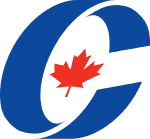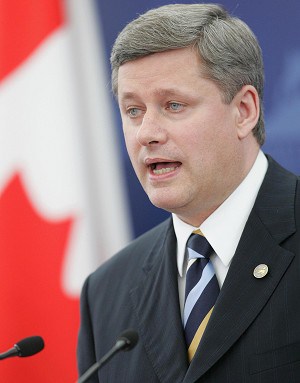Canada went to the polls last week and managed to deliver a predictable majority for incumbent Prime Minister Stephen Harper and his Conservative Party. Even Americans ignorant of Canadian politics knew as much, but more than a few with an interest in the country’s telecommunications future were stunned to watch some long-standing parties get handed their hats and ushered out the door into the political wilderness (for at least a few years anyway).
The former mighty Liberal Party — the one that always saw themselves as Canada’s Natural Governing Party, succumbed to an embarrassing election failure. Leader Michael Ignatieff not only oversaw the loss of more than 40 Liberal seats in the House of Commons, he couldn’t even manage to hold his own, losing his Toronto-area seat in Etobicoke-Lakeshore. The centrist party won just short of 19 percent of the popular vote. That’s a long fall for the party of former Prime Minister Jean Chrétien, who won three successive majority governments in 1993, 1997 and 2000. Much of the party’s strong support in Ontario collapsed, with seats swiped by Conservative and NDP candidates. The centrist era is evidently over for now.
 The Liberals take on telecommunications issues seemed mostly to rely on bashing whatever the Conservatives were doing. Much of their criticism seemed to delight in Tory missteps and disorganization, particularly over what the party felt was incoherent policy direction for telecom issues. Unfortunately, presenting a credible digital strategy alternative was not a high priority for the Liberals, and voters fretting about Internet Overcharging saw as much. The Liberals have also taken flak for being too “establishment” and business friendly in recent years. As a result, many former Liberal voters took their votes elsewhere. At least Liberal Industry critic Marc Garneau survived. He was successful at crystallizing the usage based billing (UBB) issue (and the CRTC’s failure by adopting it) in a way that consumers could easily understand.
The Liberals take on telecommunications issues seemed mostly to rely on bashing whatever the Conservatives were doing. Much of their criticism seemed to delight in Tory missteps and disorganization, particularly over what the party felt was incoherent policy direction for telecom issues. Unfortunately, presenting a credible digital strategy alternative was not a high priority for the Liberals, and voters fretting about Internet Overcharging saw as much. The Liberals have also taken flak for being too “establishment” and business friendly in recent years. As a result, many former Liberal voters took their votes elsewhere. At least Liberal Industry critic Marc Garneau survived. He was successful at crystallizing the usage based billing (UBB) issue (and the CRTC’s failure by adopting it) in a way that consumers could easily understand.
The biggest catastrophe befell the Bloc Québécois, the separatist-motivated party in Quebec. Outside of wins on the Gaspé Peninsula riding that covers the rural regional county municipalities of La Haute-Gaspésie, La Matapédia, Matane and La Mitis, and a few victories around Trois-Rivières, the Bloc was effectively obliterated — left with just four seats. They had 47. That means the BQ is now too small to even count as an official party in Canada. Observers say it was Quebec’s version of “throw the bums out,” with a very strong voter sentiment against “the establishment,” which in Quebec means the BQ. Which Canadian party is the least establishment? The NDP — and votes flowed in that direction.
 On telecom issues, BQ members didn’t seem to appreciate Bell and Videotron’s usage-based-billing policies any more than the rest of Canada, and Bell in particular endured harsh questioning from BQ members at earlier hearings.
On telecom issues, BQ members didn’t seem to appreciate Bell and Videotron’s usage-based-billing policies any more than the rest of Canada, and Bell in particular endured harsh questioning from BQ members at earlier hearings.
But the big news from the election was the sweeping realignment of Opposition to the Tories into the hands of the NDP – Canada’s social-democratic, left-wing New Democratic Party. The NDP has championed opposition to UBB like no other party in Canada. Digital affairs critic Charlie Angus, who is a brash firebrand against corporate telecom abuse and their lackeys on the CRTC, will get an even larger platform to blast away at anti-consumer policies on offer from the telecom regulator. Both Angus and the NDP champion Net Neutrality as well. Two MPs from Toronto, Peggy Nash and Andrew Cash, will also bring strength to the NDP’s policy platform on copyright issues.
The NDP won most of the seats lost by the BQ in Quebec, and also won strongholds in western Ontario, northern British Columbia, Manitoba, and the Western Arctic. In fact, NDP wins in Quebec were so frenzied, Leader Jack Layton found himself presiding over a dramatically younger caucus, including three McGill University students and a bartender in the heavily francophone riding of Berthier-Maskinonge. That presents a problem for newly elected Ruth Ellen Brosseau, who so disbelieved she was a serious candidate, she spent the last week of the campaign running around Las Vegas. She also doesn’t speak French. A local station that finally reached her in Las Vegas to discuss her win had to abandon the interview when she was unable to offer coherent answers to questions in Quebec’s majority language. Rosetta Stone is in her near future. So is a trip to her district — Brosseau told the Trois-Rivières newspaper Le Nouvelliste she has never stepped foot in the riding before. But she offered the people there seemed nice.
![]() While the NDP doesn’t have a majority, they are sure to call out any Conservative telecommunications policies that appear to be anti-consumer, and turn them into media events — good news for a country whose television media often ignores telecommunications stories. A five minute interview with Charlie Angus will surely deliver plenty of amusing soundbites for the evening news.
While the NDP doesn’t have a majority, they are sure to call out any Conservative telecommunications policies that appear to be anti-consumer, and turn them into media events — good news for a country whose television media often ignores telecommunications stories. A five minute interview with Charlie Angus will surely deliver plenty of amusing soundbites for the evening news.
With the strengthened majority of the Conservative Party, it’s a safe bet Canadian telecommunications policies will no longer be stuck in neutral. There are open questions if Tony Clement, Industry Minister will retain his portfolio or make a move elsewhere in government. Clement has steadfastly insisted UBB is unacceptable to him and the government. The upcoming review by the CRTC of their earlier decision is likely to give the government some time to sort things out. The Conservatives ignored Openmedia.ca’s request for a formal position against UBB, something that does give us pause.
 It will remain important for Canadian consumers to keep the pressure on the Tories to act when regulatory bodies like the CRTC fail. The natural view of the Conservatives in to let the marketplace sort things out, but even they recognize that is an impossibility in a duopoly. When 500,000 Canadians sign a petition against UBB, standing with big cable and phone companies would be political suicide.
It will remain important for Canadian consumers to keep the pressure on the Tories to act when regulatory bodies like the CRTC fail. The natural view of the Conservatives in to let the marketplace sort things out, but even they recognize that is an impossibility in a duopoly. When 500,000 Canadians sign a petition against UBB, standing with big cable and phone companies would be political suicide.
What Conservatives are likely to promote is increased competition. So far, that has not meant much, especially as consolidation continues in the broadcasting and telecommunications sector. The Tories best answer for now is throwing doors open to foreign investment in telecommunications, especially in wireless. That will mean relaxing foreign ownership rules which could help new cell phone entrants — Wind Mobile, Mobilicity and Public Mobile expand their competitive reach. If the Tories adopt the new rules, even AT&T could move north of the border — but that will bring no relief to Canadians seeking an escape from Internet Overcharging schemes. Other issues likely to come up — copyright reform legislation, royalty taxes imposed on digital devices, and piracy.


 Subscribe
Subscribe

I think the Tories will realize that, in the end, that UBB essentially stunts Canada’s ability to compete in the knowledge based economy.
This issue isn’t right vs left, or big business vs the ‘working man’. This issue is half a dozen specific companies versus the interests of the nation of Canada.
I wish the same was true here in the USA. Republicans reflexively support UBB style pricing on the federal level because providers are for it. My suspicion is the pervasive amount of campaign cash is responsible for a lot of that,